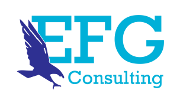The UAE is primed to drive the move to the circular economy
Smart investors who are looking to maximise their capital over the long term are paying special attention to circular economy principles. After all, the potential gain could be beneficial to an individual’s portfolio and contribute to achieving sustainability.
The idea of a “circular” economy was conceptualised in the 1970s as an academic’s dream, where one day, the world would reform its “linear” economy, which operated in a take, make, waste paradigm. Instead, it would adopt a new circular economy that would reduce, reuse and recycle the resources required for modern life, creating a sustainable “closed loop” system.
Over the decades, several initiatives were taken to make this dream a reality. Recycling legislations were adopted, innovative businesses were established, patents were registered, and much more. Public awareness and enthusiasm slowly began to grow.
Nonetheless, humankind’s consumption of the earth’s resources has more than tripled since 1970. If current practices continue, we will need to find an additional Earth planet to satisfy our need for resources.
However, three significant catalysts – high inflation, climate change and legislation – are compelling us to transition towards circular economic practices such as using renewable energy and materials, building greater efficiency and less waste into supply chains, and delivering goods and services virtually.
High inflation is changing businesses and consumers
Today’s ongoing high inflation is leading some consumers and businesses to adopt circular economy practices. Central banks have continued to hike interest rates to help rein in inflation from 40-year highs.
Moreover, when inflation rates are high, consumer behaviour naturally changes, as people limit their expenditures and make trade-offs about what is essential versus what is expendable.
According to a study by RedSeer, the UAE’s market for pre-owned items has been growing steadily, with a quarter of consumers in the region having bought or rented pre-owned goods within a six-month period. The study also noted that the interest in pre-owned or second-hand goods was accelerating due to growing digital adoption, an increasing focus on the environment and the chance to snap up significant discounts. In the UAE, vehicles emerged as the most popular segment in the pre-owned market, followed by electronics, homes and fashion.
Inflation is also driving businesses to explore cost saving opportunities, frequently through recycling. A vast majority of supply-chain leaders anticipate profits to increase between now and 2025 as a result of implementing circular economy principles. Therefore, savvy investors should seek out companies that are conscientiously recycling their resources and avoiding waste.
Government policies now encourage the transition
Some governments are supporting the shift to a circular economy.
The UAE Cabinet approved the UAE Circular Economy Policy in January 2021, which provided a comprehensive framework for determining the country’s approach to achieving sustainable governance and the optimal use of natural resources through the adoption of consumption and production methods that ensure the quality of life for current and future generations.
Since then, the country has approved over 22 policies aimed at accelerating the UAE’s transition to a circular economy. These policies have contributed to addressing the challenges faced by the private sector in its shift to a circular economy and support the country’s green development drive. The Cabinet continues its efforts to implement the UAE Circular Economy Policy through programmes and projects that are set to attract investments to this field and expand its infrastructure. Efforts are also being exerted to establish a circular economy database, in addition to offering incentives to encourage the private sector to shift towards clean production methods.
Mitigating climate change
And of course, in addition to inflation and legislation, the drive to mitigate climate change is also causing some consumers and businesses to adopt circular economy practices. Over the next 20 years, global temperatures are expected to reach or exceed 1.5° C of warming above pre-industrial levels. To counteract this trend, urgent action is required, and individuals and corporates are responding, recognising the necessity to better manage their waste and reduce their consumption.
While there are challenges to transitioning to a circular economy, there are also tremendous opportunities and potential benefits to our world. Estimates show that the shift to circular economy practices could generate $4.5 trillion of additional economic growth by 2030. According to a study by McKinsey, businesses that adopt four out of these six potential circular economy practices could significantly improve their performance and reduce their costs:
- Regenerate (shifting to renewable energy)
- Share (promoting the sharing of products and prolonging lifespans)
- Optimise (improving efficiency and removing waste from supply chains)
- Loop (keeping materials in “closed loops” through remanufacturing and recycling)
- Virtualize (virtual delivery)
- Exchange (replacing old materials with advanced renewable ones)
Investors seeking to access these themes have plenty of options to do so, both in the public equity markets, or via venture capital opportunities in the private sector.
SOURCE & CREDITS : ArabianBusiness.com

